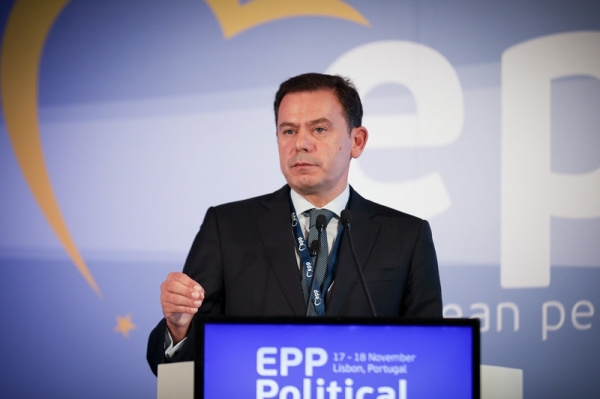Portugal’s centre-right wins election as far-right surges
The Portuguese electorate confirmed the predicted shift to the right in an election on Sunday (10 March) with an above-average turnout — and no broad majority for any force to form a government.
This was the third election in five years for the country, which was led by the Socialist Party for more than eight years until a corruption scandal caused longstanding socialist leader Antonio Costa to resign and call for new elections.
The result saw the end of bipartisanship in Portugal and a socialist defeat already acknowledged early on Monday by Pedro Nuno Santos, the socialist leader who followed Costa.
With a few seats still to be allocated, the centre-right party led by Luís Montenegro (PSD/EPP) won the election with 29.49 percent of the vote (79 seats).
The socialist party (PS/S&D) follows closely behind with 28.66 percent of the vote (77 seats) — a good result, but not enough to guarantee a new coalition government led by Nuno Santos, as his old political allies did not gather enough support.
Yet the clear winner of these elections is the far-right party Chega! (Enough!), as even Montenegro’s PSD does not have enough seats to form a majority government under the centre-right coalition Democratic Alliance (AD).
The rise of Chega! has been meteoric, as the party won just over one percent of the vote in 2019, and now has more than 18 percent of the vote (48 seats), which would make it the third political force in parliament.
Its leader, André Ventura, has already said that they are open to negotiations to form a government.
"I don’t know of any country that has elected a 20 percent force that is not part of the government," said Ventura earlier on Monday.
However, centre-right leader Montenegro said in the run-up to the elections that his party would not form a coalition with Chega! and the socialist leader said they would not oppose a minority government led by Montenegro.
Other voices in Montenegro’s party seem more ambivalent about the possibility of forming such a governing alliance, paving the way for some difficult negotiations in the coming days and potentially leading to new elections in the near future.

